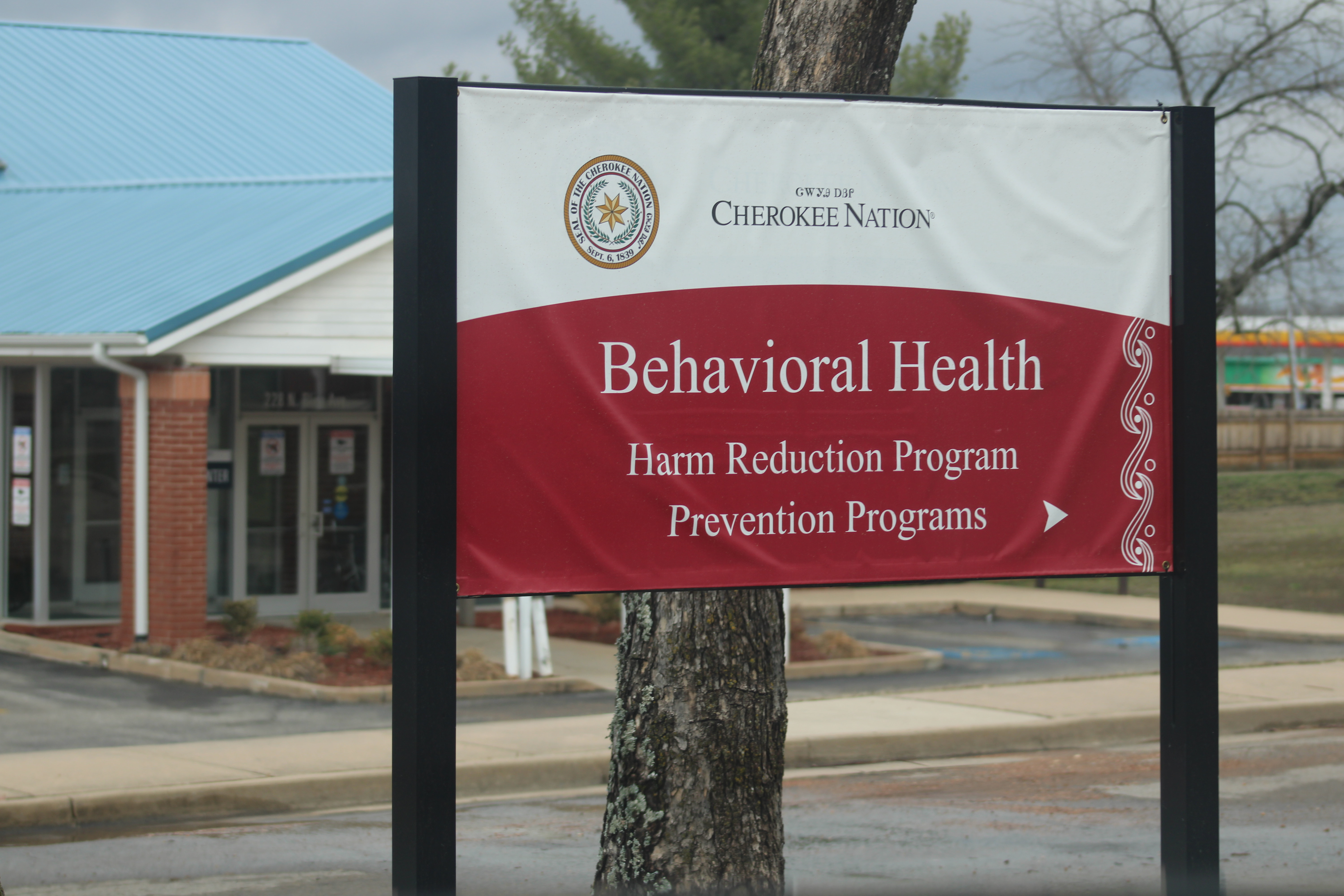
- Details
- By Darren Thompson
Since opening in January of this year, the Cherokee Nation Harm Reduction Progam — funded in part by a $1.9 million Substance Abuse and Mental Health Services Administration (SAMSHA) Harm Reduction Grant— has treated more than 120 people to reduce opioid use on the Cherokee reservation in northeastern Oklahoma.
In October 2022, Cherokee Nation was one of 25 award recipients to receive a SAMHSA Harm Reduction Grant to start a harm reduction program, a public health approach to addressing substance abuse through prevention, treatment, and recovery.
In 2020 The Cherokee Nation reported 18 deaths, 79 non-fatal drug overdoses, and 576 treatment admissions in seven counties among its citizens.
According to the Tahlequah Daily Press, while Cherokee Nation makes up less than 6% of Oklahoma’s population, nearly a third of the opioids distributed in the state in recent years went into Cherokee Nation communities.
The Cherokee Nation Harm Reduction Program is open to both tribal citizens and the general public. The program provides those seeking help with a safety package to reduce harm related to drug use, including sterile syringes, alcohol wipes, fentanyl test strips, Narcan nasal spray, and antibiotic ointment. Needle exchange services are also available at the center. Clients can access Fentanyl test strips, Narcan nasal spray, HIV and Hep C virus rapid testing, recovery support, referrals, and essential clothing and hygiene kits. Clients of the program can receive services anonymously if they choose.
“What we’re doing with Harm-Reduction, coupled with our other recovery efforts, should be impactful,” Principal Chief of the Cherokee Nation Chuck Hoskin Jr. said to Native News Online. “We need it to be.”
The SAMSHA website states, “The U.S. is experiencing the most significant substance use and overdose epidemic it has ever faced.” According to the Centers for Disease Control (CDC), more than 107,000 overdose deaths were recorded in 2021, with two-thirds of those deaths caused by fentanyl.
In 2022, Biden-Harris Administration awarded $1.5 billion to support states, tribes and U.S. territories’ efforts to combat the opioid epidemic.
In 2017, the Cherokee Nation took three of the nation’s largest pharmaceutical distributors— AmerisourceBergen, Cardinal Health and McKesson— to court for “contributing to an epidemic of prescription opioid abuse” within the Tribe.
On Sept. 28, 2021, the Cherokee Nation announced that it reached a settlement with McKesson Corporation, Cardinal Health and AmerisourceBergen Drug Corporation for $75 million, the largest settlement in the Tribe’s history.
The Harm Reduction Program is just part of the Nation’smulti-pronged approach to tackling opioid addiction; the Tribe plans to bolster infrastructure for addiction treatment and mental health to the tune of $73 million of the opioid settlement and $100 million from its Public Health and Wellness Fund over the next five years, according to Principal Chief of the Cherokee Nation Chuck Hoskin Jr.
The funds will be invested in building addiction treatment facilities, scholarships for Cherokee Nation citizens to enter careers in mental health and apprenticeships for people in addiction recovery.
“Often, people are worried about being displaced from their job because of recovery or because of addiction,” said Hoskin. “Can we get them into employment after recovery?”
More Stories Like This
New Mexico Will Investigate Forced Sterilization of Native American WomenUSDA Expands Aid for Lost Farming Revenue Due to 2025 Policies
Two Feathers Native American Family Services Wins 2026 Irvine Leadership Award
Bill Would Give Federal Marshals Authority to Help Tribes Find Missing Children
Indian Health Service to Phase Out Mercury-Containing Dental Amalgam by 2027

